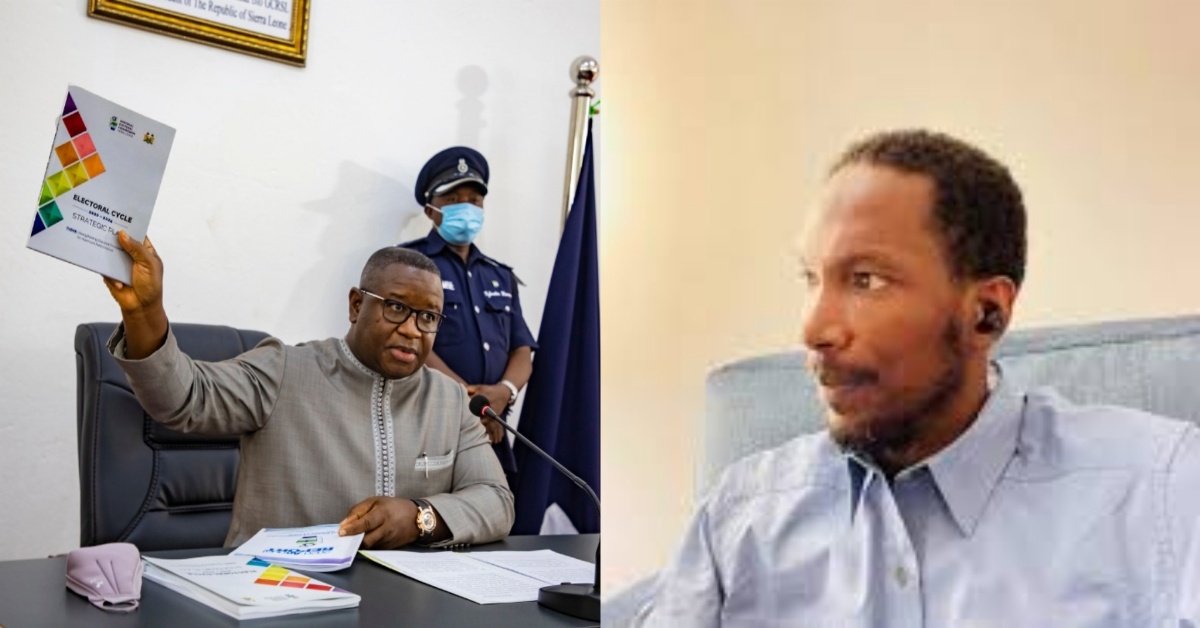As part of their press daily updates, the Africanist Press has pointed out key points the Sierra Leonean public need to know about the proposed Public Elections Act, 2022.
The Africanist Press, made this revelation after they have obtained and reviewed an electronic copy of the proposed law.
“We discovered that the proposed 2022 Public Elections Act contains 15 parts, including revised provisions on election financing, a fixed timeline for presidential elections, new procedures and requirements for voter registration, and the geographical arrangement of electoral boundaries. Although public discussion has yet to happen, some MPs already believe that the proposed election law would enlarge electoral participation,” they stated.
The Africanist Press explains below why this supposition is faulty.
“1. On the surface, the new law provides for 30% safe seats for women in Parliament, it opens opportunities for diaspora voting, and it removes restrictions on naturalized citizens from electoral participation. However, despite these seemingly progressive steps, critics have voiced genuine concerns that the proposed legislative changes infringe on entrenched aspects of the 1991 Constitution. A revision to Section 32(8), for example, empowers the President to remove any member of the Electoral Commission on grounds of “gross misconduct.” There is no clear definition of what might constitute “gross misconduct;” a broad proviso that leaves many avenues for multiple interpretations.
2. Moreover, critics note that the proposed legislation provides the Electoral Commission and the President unrestricted powers to also determine how future elections would be organized. Former Freetown Mayor, Winstanley R. Bankole-Johnson, observed that “a possibility now exists for the government to run the 2023 parliamentary elections both by constituency-based and district block systems in tandem.” Bankole-Johnson noted that the proposed law provides for situations in which the President, after consulting with the Electoral Commissioner, would have the power to direct that elections be “conducted on the basis of the existing districts in a manner to be known as the district block representation system instead of constituencies.”
3. Other seemingly minute, but significant details include additions to the provisions on voter registration requirements, which includes registration procedures. In the proposed legislation, two new sections contain essential revisions warranting public conversation and scrutiny as they could limit thousands from voting. One clear example is the proposal to revise the voter register to include national identification numbers (NINs) of voters as part of the required registration information. Section 13(1)(a) of the pr0posed Public Election Act 2022 makes the inclusion of voter’s NIN a requirement of the registration record.
4. This new requirement provided for in Section 13(1)(a) is a direct attempt to incorporate the National Civil Registration Authority (NCRA)’s registration requirement into the election process. This requirement implicitly provides an instrument to exclude eligible voters who are neither registered by NCRA or do not have an NIN. The addition of the NIN to the voters register in Section 13(1)(a) of the proposed 2022 Public Elections Act could be a voter suppression strategy; it is a registration requirement that many citizens who are presently not on the NCRA’s database would not fulfill before the upcoming voter registration exercise in September 2022. Moreover, those voters who are more economically, socially, or culturally disadvantaged are the most likely to not have an NIN and may be more likely to vote against the current ruling party.
5. In early May this year, Sierra Leonean MPs unanimously ratified an agreement granting Constrat Systems SL LTD a 15-year contract to digitize the country’s vital records and produce securitized and multi-purpose identity cards with NINs to Sierra Leoneans and other residents. On 17 May 2022, officials from the NCRA, the Immigration Department, and the Labor and Social Security Ministry issued a joint communique making the use of NINs a mandatory requirement to access “services that include but not limited to immigration services, resident and work permits.” This joint communique became effective on 1 June, 2022; exactly three weeks before MPs introduced the proposed Public Elections Act 2022 that also seeks to include the NIN as a mandatory field of the voter register.
6. The inclusion of the NIN as a mandatory field in the voter register “would discourage voter registration, especially in areas of the country where NCRA’s challenging technology has not enhanced civil registration.” The addition of the NIN to the voters register in Section 13(1)(a) of the proposed 2022 Public Elections Act could be a voter suppression strategy; it is a registration requirement that many citizens who are presently not on the NCRA’s database would not fulfill before the upcoming voter registration exercise in September 2022. Moreover, those voters who are more economically, socially, or culturally disadvantaged are the most likely to not have an NIN and may be more likely to vote against the current ruling party.”
For more details on the new proposed legislation and how it would potentially disenfranchise more than 50% of eligible voters, see the Africanist Press website: https://africanistpress.com/2022/06/24/sierra-leone-proposed-voter-registration-requirements-may-exclude-thousands-of-eligible-voters/











